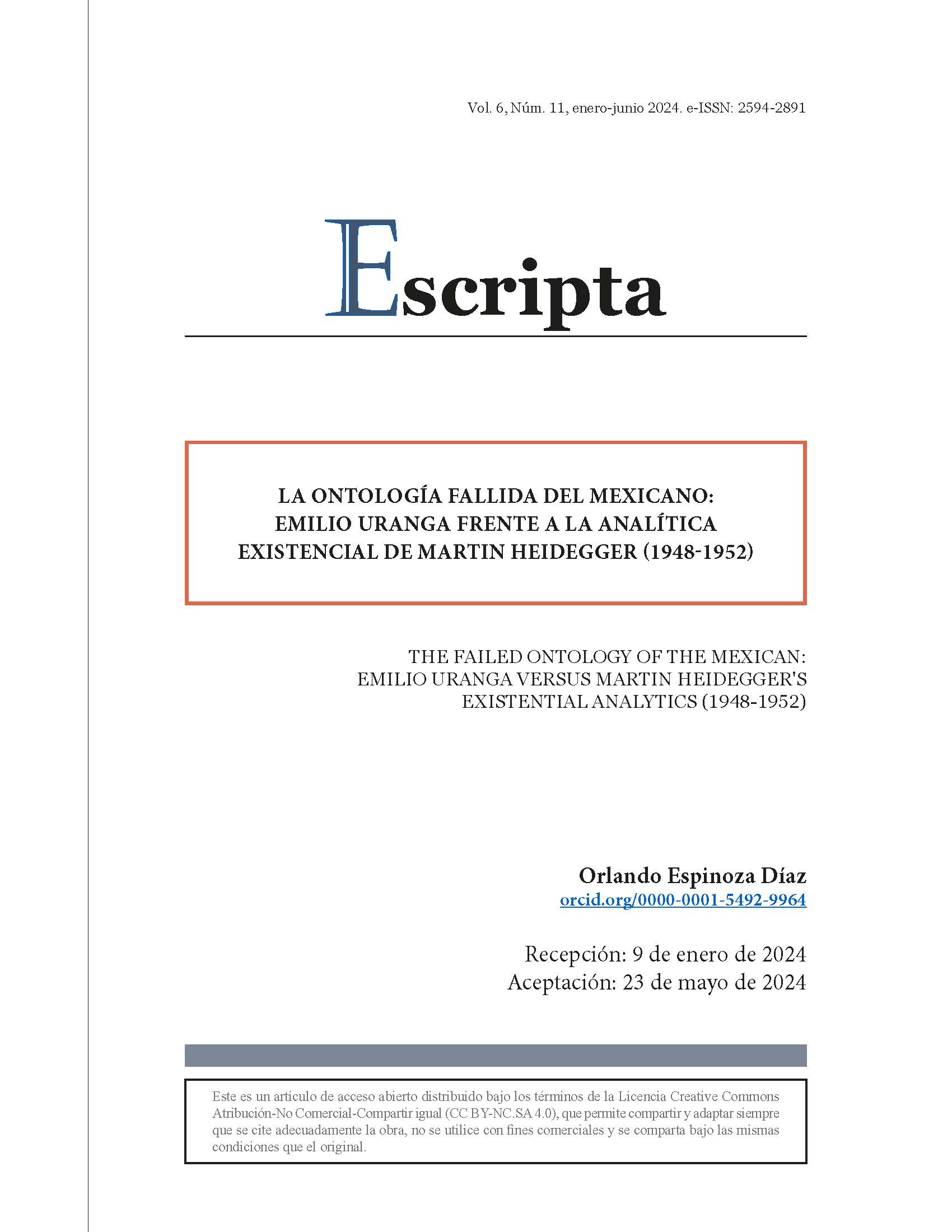The failed ontology of the mexican: Emilio Uranga versus Martin Heidegger's existential analytics (1948-1952)
Keywords:
Hyperion Group, Uranga, Heidegger, Ontology, Ontic, AccidentalityAbstract
From the existential analysis of Martin Heidegger, the present work aims to make an interpretation of the theory on the character or “way of being” of the Mexican proposed by the Mexican philosopher Emilio Uranga. In order to show the relevance of his interpretation, we first analyze some of his philosophical motivations influenced by the context in which he developed his thinking. Afterwards, this essay focuses on his main work Analysis of the Mexican Being (1952), to critically address the concept of accidentally, with which Uranga intends to base his ontology of the Mexican. In a third moment, we analyze some aspects of Heidegger´s fundamental ontology developed in Being and Time (1927), which according to the Mexican philosopher, served as the basis for creating his ontology the Mexican. Therefore, based on a rigorous reading of Heideggerian approaches, this essay attempts to demonstrate that “accidentality” is only an ontic manifestation of the fall [Verfallen], thus revealing that Uranga´s work is based on an erroneous interpretation of Heidegger´s work.
Downloads

Downloads
Published
License
Copyright (c) 2024 ESCRIPTA

This work is licensed under a Creative Commons Attribution-NoDerivatives 4.0 International License.

